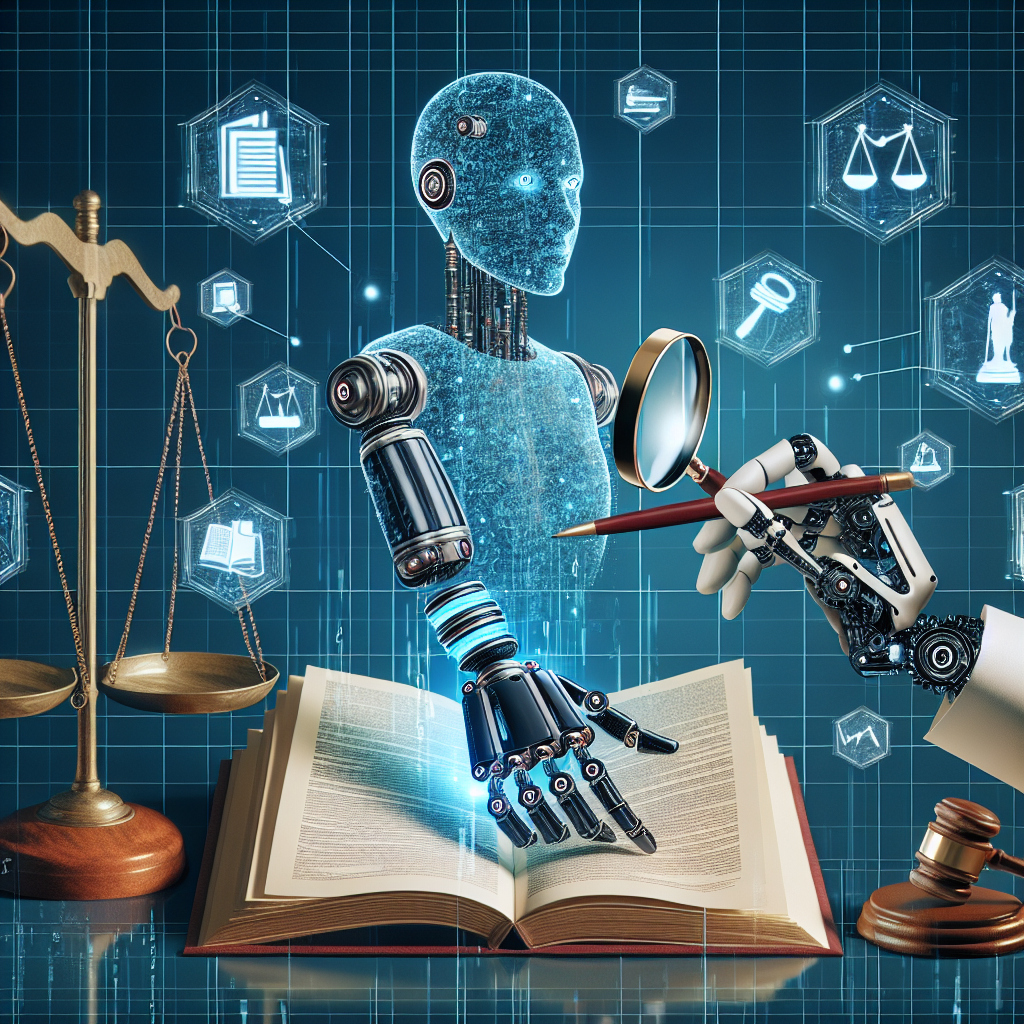Artificial Intelligence (AI) has revolutionized the way many industries operate, and the legal field is no exception. One area where AI has made a significant impact is in the realm of legal due diligence processes. Legal due diligence is the process of investigating a business or individual to assess legal risks and compliance issues before entering into a business transaction, such as a merger, acquisition, or investment. Traditionally, legal due diligence has been a time-consuming and labor-intensive process, requiring lawyers to review vast amounts of documents and data to identify potential risks. However, AI has the potential to streamline and improve this process, making it faster, more efficient, and more accurate.
The Role of AI in Legal Due Diligence Processes
AI technology, such as machine learning and natural language processing, can analyze and review large volumes of documents and data much faster than humans can. This has the potential to significantly reduce the time and cost associated with legal due diligence processes. AI can quickly identify key information, such as contract terms, potential liabilities, and regulatory compliance issues, allowing lawyers to focus their efforts on addressing these issues rather than sifting through mountains of documents.
One of the key benefits of AI in legal due diligence is its ability to identify patterns and trends in data that may not be immediately apparent to human reviewers. For example, AI can analyze past legal cases and regulatory filings to identify potential risks and compliance issues that may not have been considered by human reviewers. This can help lawyers to identify and mitigate potential risks before they become major problems.
AI can also improve the accuracy and consistency of legal due diligence processes. Human reviewers may miss important information or make errors in their analysis, leading to potential legal risks and liabilities. AI, on the other hand, can review documents and data with a high level of accuracy, ensuring that all relevant information is identified and analyzed. This can help to reduce the likelihood of errors and ensure that legal due diligence processes are conducted in a thorough and comprehensive manner.
In addition to improving the efficiency and accuracy of legal due diligence processes, AI can also enhance the quality of the analysis and insights generated from these processes. AI can provide lawyers with valuable insights and recommendations based on its analysis of data, helping them to make more informed decisions and identify potential risks and opportunities that may not have been immediately apparent. This can help to improve the overall quality of legal due diligence processes and ensure that all potential risks and liabilities are identified and addressed.
FAQs
Q: How does AI technology improve the efficiency of legal due diligence processes?
A: AI technology, such as machine learning and natural language processing, can analyze and review large volumes of documents and data much faster than humans can. This can significantly reduce the time and cost associated with legal due diligence processes.
Q: Can AI technology identify patterns and trends in data that may not be immediately apparent to human reviewers?
A: Yes, AI technology can analyze past legal cases and regulatory filings to identify potential risks and compliance issues that may not have been considered by human reviewers. This can help lawyers to identify and mitigate potential risks before they become major problems.
Q: How does AI technology improve the accuracy and consistency of legal due diligence processes?
A: AI technology can review documents and data with a high level of accuracy, ensuring that all relevant information is identified and analyzed. This can help to reduce the likelihood of errors and ensure that legal due diligence processes are conducted in a thorough and comprehensive manner.
Q: How can AI technology enhance the quality of the analysis and insights generated from legal due diligence processes?
A: AI technology can provide lawyers with valuable insights and recommendations based on its analysis of data, helping them to make more informed decisions and identify potential risks and opportunities that may not have been immediately apparent. This can help to improve the overall quality of legal due diligence processes.
In conclusion, AI technology has the potential to revolutionize legal due diligence processes by improving efficiency, accuracy, and quality. By leveraging AI technology, lawyers can streamline the due diligence process, identify potential risks and compliance issues more effectively, and make more informed decisions. As AI technology continues to advance, its role in legal due diligence processes is likely to become even more significant, transforming the way legal professionals conduct due diligence and manage legal risks.

